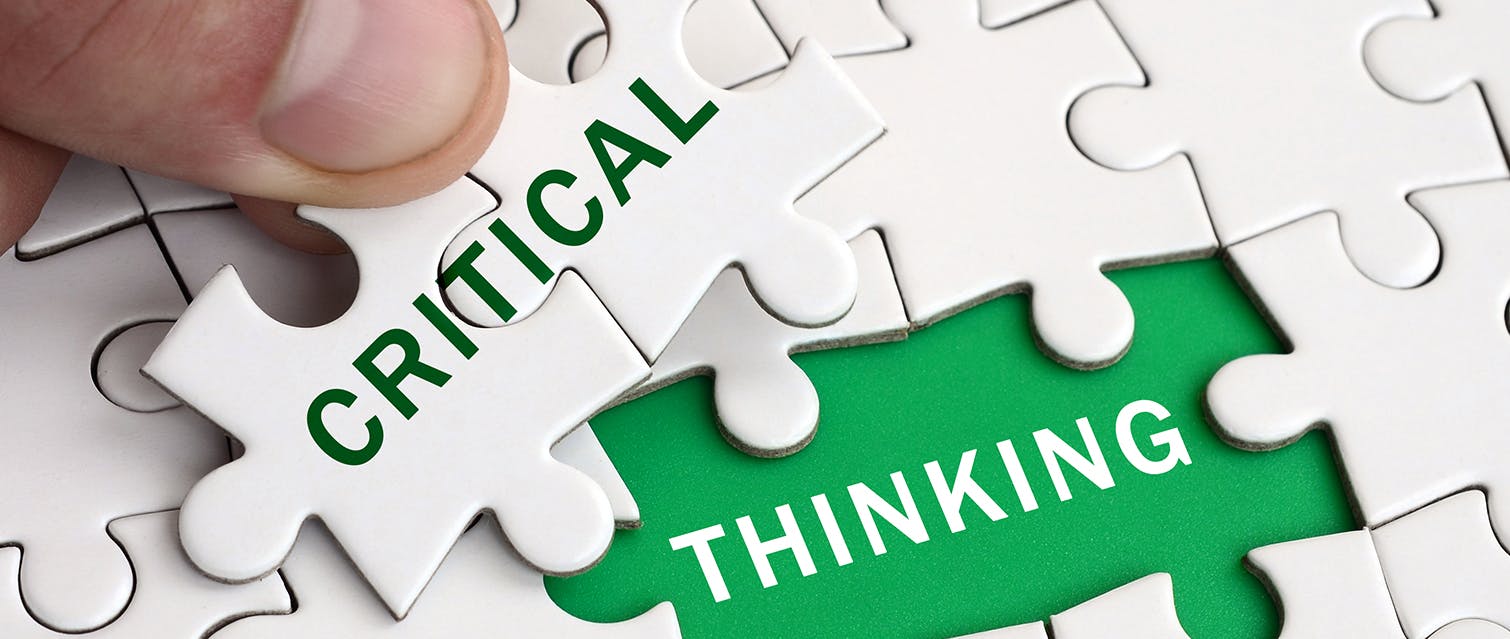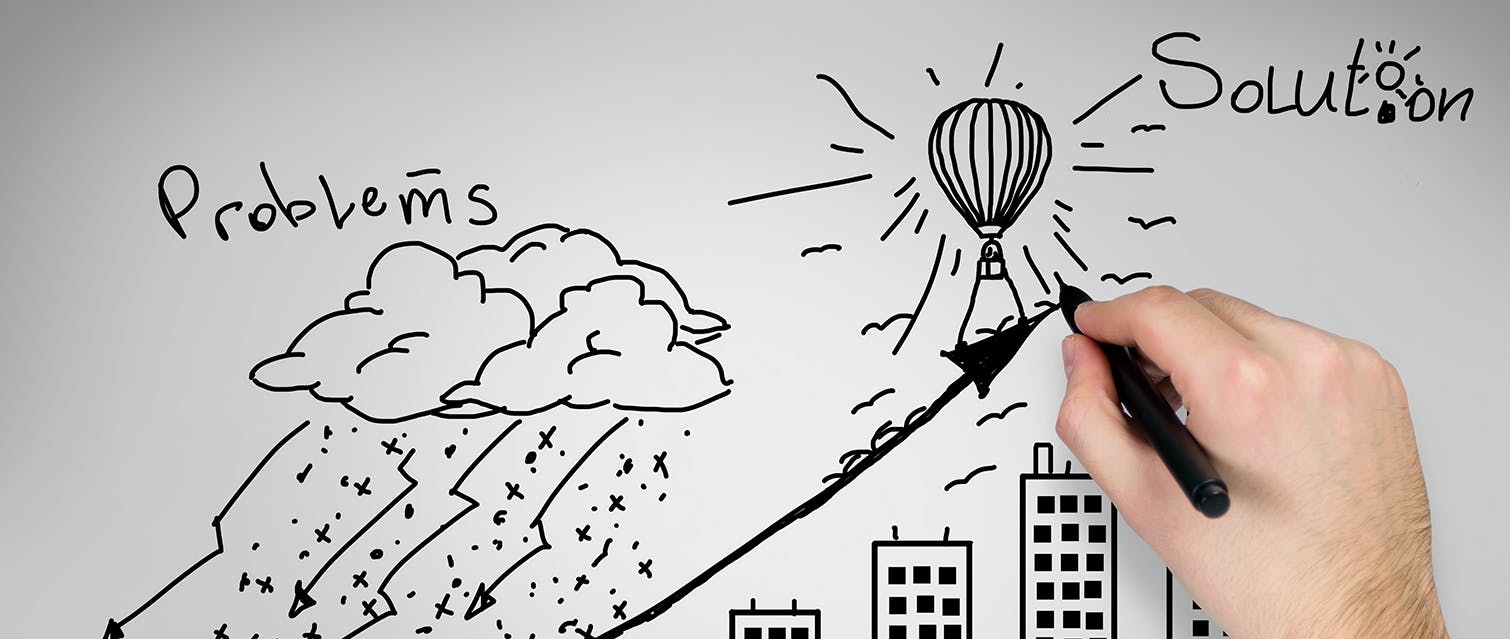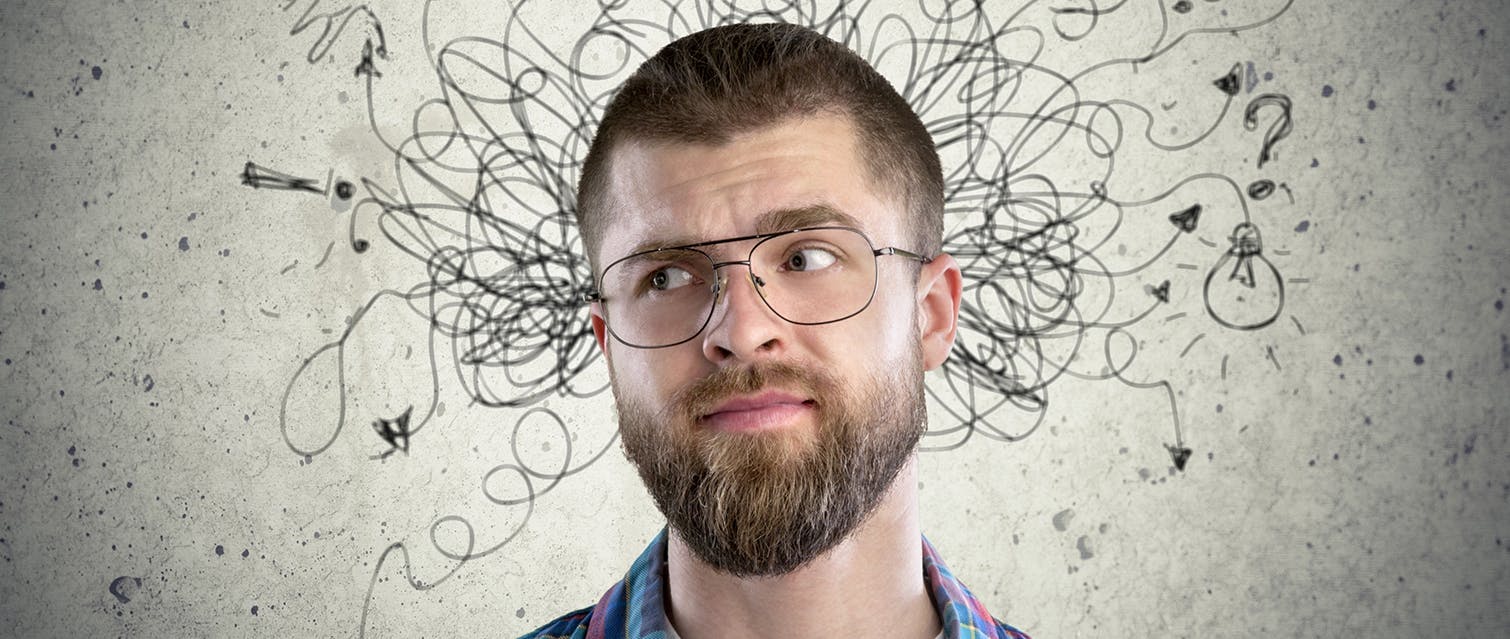Home | Blogs | Critical Thinking Skill You Need To Master Now
Critical Thinking Skill You Need To Master Now
Our whole life is governed by our feelings and thoughts. Since most of us live heavily without realizing the truth, we don't mind improving our thinking skills. However, thinking is among the skills that scientists in education, psychology and many other fields work on and aim to develop. Critical thinking is among the most basic and important types of thinking.
For many people, while thinking is an unconscious action, it is possible to pull it into the field of consciousness and develop it with special training techniques.
Developing skills such as knowing your own thinking standards, asking questions and understanding your place in thinking, learning the context of thinking, acquiring good thinking skills, decision-making, problem solving, dealing with irrational thinking to recognize mental deception, ethical reasoning, strategic thinking skills and advanced criticising will be the best outlines to learn in here.
We aim to provide knowledge and skills in being a thinker. The article, which covers these skills so far, is intended to both provide information and encourage thinkers to evaluate new methods to be as effective as they can.
This article, which explains how to strategically and systematically develop critical thinking skills, which ranks first among 21st century skills, gives you important techniques that they can use both in daily life and professional life.
In the information bombardment brought about by the information age, as human-being, you play an important role in the transformation of knowledge into creativity by taking critical thinking, which is the function of the left brain, much further.
With the perfection brought by simplicity, you develop the decision-making skills of the people on earth practically in the changing and revolutionary technological developments and provide them with the equipment that will enable them to make a difference by creating awareness in their environment.

What is Critical Thinking?
Criticism finds the focal point of the intellectual actions in which multiple and in-depth perspectives are developed, and it takes place with different and rich meanings of thinking. Criticism is not just about seeing the negative aspects; At the same time, it includes revealing the positive aspects of the job, situation, person or product. Criticizing means to evaluate something with its good or bad aspects.
The concept of critical thinking goes back to Socrates. Previously, from this concept, logical thinking aimed at guiding our behavior through philosophy was understood. Critical thinking, which is sometimes considered as the correct description of events, was later defined as "To make conscious judgments and express these judgments in order to decide what to do and what to believe".
In learning to think, it is an important point that the individual examines and criticizes the stimuli presented to him/her in all aspects. Because by criticizing, the individual can perceive, interpret and evaluate the stimuli more easily. In this respect, criticizing is an important feature in giving a meaning to stimulants by revealing points that are important or not for him/her.

Characteristics of the critical thinking
◦ He/she constantly explores
◦ Always looking for why
◦ Is open minded
◦ Without prejudice
◦ Is honest in his/her judgments
◦ Is humble
◦ He/she makes sense in choosing criteria
◦ Has a clear perspective on the issues
Critical thinking is a process, so its process involves the following skills:
1. Description: The situation considered as a problem is defined.
2. Establishing a Hypothesis: Establishing a hypothesis for the problem.
3. Gathering Information: The information needed is determined, collected and properly sorted.
4. Interpretation and Generalization: The information is compared and interpreted and generalizations are made.
5. Reasoning: Logical lives are investigated within the framework of cause and effect; Additional information is provided where needed.
6. Evaluation: Criteria are determined, appropriateness of data is evaluated and judgments are reached.
7. Application: Provisions obtained by induction apply. Critical thinking skill is based on healthy, disciplined, systematic and questioning thinking, and the individual must have an adequate level of thinking infrastructure in order to develop critical thinking skills.
The development of thought or learning to think provides the basis for being himself and forming his own thoughts. Individuals who have any thoughts on a subject make a comparison between the stimulus they encounter with their own thoughts while making sense of the stimuli.

How to Perform Critical Thinking?
Critical thinking is a concept that goes back to Socrates. At that time, this concept was accepted as an act of logical thinking that guides people's behavior and uses philosophy as a tool. It has been defined as making correct definitions about events in the process, and has been handled more comprehensively as time progresses.
While conducting critical thinking, it is very important to make it critical and to know the skills required in this direction and to use them correctly. This way of thinking is rational. For this, it is necessary to master the principles of reasoning and to develop thinking in the light of these principles.
Scientific research methods about information and using these methods are necessary to make them critical and to be able to evaluate different phenomena. It is necessary to be aware of the things that can hinder the critical thinking process and to consider these obstacles.
Situations such as being biased and having incomplete information may prevent this process from being carried out effectively and correctly. Thus, a healthy thinking can not be achieved and there may be problems in the judgments obtained.
It will be useful to look at the factors that hinder the critical thinking process in more detail. Because learning these factors contributes to the correct management of the thinking process. The person cannot manage the process correctly without knowing what to avoid.
The first factor is the person's approach to the subject he or she is thinking about. It is wrong to take a one-sided, selective, stubborn and imitative approach. Being pre-minded, afraid of making mistakes, with principles of logic research. Misapplication of techniques and ignorance hinders the thinking process.
The second factor is the characteristics of the person himself. People who are prejudiced, egoistic, self-sufficient and have a dependent personality structure find it difficult to criticize.
The last factor is one way of thinking. People who engage in ideological, group and authoritarian-centric thinking can make serious mistakes while performing the critical thinking process. That's why it is very important to maintain neutrality and take an objective approach.

Sum up:
In the critical thinking process, the individual acquires new meanings from the concepts he/she has by making comparisons in the language structure and concept world, which constitute the basis of thinking skills.
Since the conceptual world of language shapes the boundaries and depth of the world of thought, the relationship between language and thought, quality thinking and language skills can be clarified.
Blog
A journey of 18 years of dedication, passion, and success.





